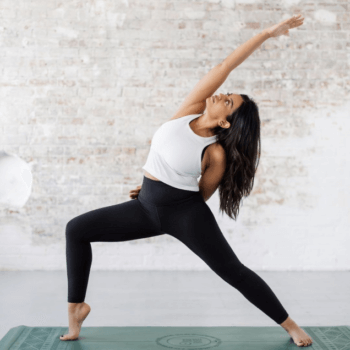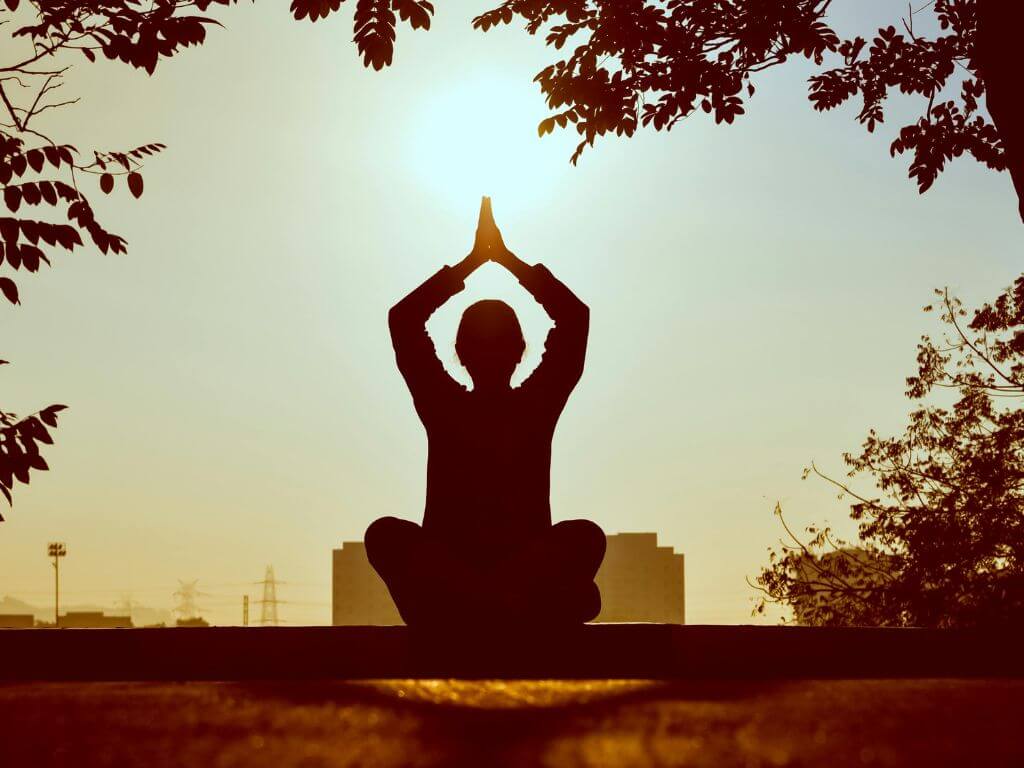Sometimes we need a reminder of how amazing some of our ancient meditation practices are. Which is why we’ll never tire of celebrating the physical benefits of yoga. However, what is not often discussed (or probably overshadowed) is the mental health benefits of being able to give yourself some quality meditative time. With our newly scoured list of global yogis you need to follow, including Goa’s and yoga practitioner and author Nadia Gilani, who wrote “The Yoga Manifesto” and more, here’s why we firmly believe that yoga is not only great for the body and soul but also for your mind!
When I was younger, I didn’t quite understand yoga. I’d often feel dizzy from all the breath work. However, as I’ve gotten older, I’ve come to appreciate that yoga makes me slow down and take a breather from the hustle and bustle of my every day life. As well, I’ve learned that yoga is a fantastic form of exercise that can challenge you physically, while also promoting wellness from within. This holistic practice comes with many health benefits for the mind and has been proven to help reduce stress, manage anxiety, improve your mood and much more. What’s even better is that you can engage in this incredible form of self-care at a class or from the comfort of your home.

If you’re not convinced about the mental health benefits of yoga and some fabulous yogis, check out our list below and give it a try yourself! Your body and mind will thank you.
Mental health benefits of yoga:
- Reduce stress: Have you heard of a stress hormone before? That’s what cortisol is, and according to Calmery, yoga helps to reduce the release of cortisol into your bloodstream.. In addition, “It combines physical fitness with the philosophy of self-compassion and mind-body awareness that also enhances resilience.”
- Manage anxiety: I can speak from experience and confirm that yoga can certainly help you manage your anxiety. In fact, Calmery explains that “the anxiety scores of women who described themselves as “emotionally distressed” improved by 30% after 3 months of yoga classes.” This is because yoga helps with the mind-body connection, which can help you more clearly identify the root cause of your anxiety and provides a healthy coping mechanism.
- Improve your mood: Gamma-aminobutyric acid (GABA) is a neurotransmitter that helps to regulate things like your mood and response to stress. When your GABA levels are low, this can lead to feelings of depression, feeling low, or more. However, Calmery highlights that “by consistently engaging in yoga, you can boost the levels of GABA neurotransmitters in your brain.” This could be in part because yoga helps you to empty your thoughts, boost happy thoughts, and let go of what’s weighing you down.

- Become self-aware: Yoga helps you to slow down and reflect, which often leads to a gaining a deeper understanding of yourself and what may be troubling you. Gaining this self-awareness can help you to learn how to manage your emotions or triggers.
- Promote mindfulness: Yoga is a great way to become more mindful as it helps you to refocus your mind to the present moment, your body, the movement, your breath, your mind, and more. You become more in touch with yourself, rather than worrying about what’s to come. This can help you off the mat with dealing with your day-to-day life.
- Improve your quality of sleep: Sleep arguably impacts every aspect of your life. When I’m not getting enough sleep, it takes a major toll on my mental health, which impacts me, my ability to function, the quality of my work, and the people around me. Yoga is helped me tremendously in the past as it helps the body to produce more melatonin, which is a “a hormone that regulates sleep and wakefulness” that leads to a more restful sleep, notes Calmery.
- Boost concentration: In my experience, when I’m more active, I have more energy to get through my work and I think better. Calmery confirms that “practicing yoga and mindfulness meditation can increase energy levels, allowing participants to focus on present tasks.” In fact, “it helps release endorphins and increase blood flow essential for improved brain function.”

Must-watch yoga instructors:

Angie Tiwari, who is of Indian descent, leaned into yoga after a difficult period in her life and it became a catalyst of change. Today, “Tiwari is a yoga, meditation, and breathwork expert, Ayurveda consultant and founder of UNEARTHED retreats and wellbeing community platform.” In addition, her work seeks to break down stereotypes in the health and wellness space and bring greater awareness to the South Asian culture. Be sure to check out her YouTube channel for a variety of yoga tutorials that will leave you feeling recharged and ready to take on the world.

Burn out, the pressures caused by a lack of diversity, and it’s impact on her health caused Puravi Joshi abruptly quit her corporate job back in 2017, notes Women’s Health. After that, she travelled for some time and wound up training in the practice of yoga before her return home. Despite yoga being part of her Indian ancestry, she had never intended to go seek out a career in yoga once she got back to London, England. Nonetheless, Joshi decided to give a try and hasn’t looked back since. She has launched Mysa London, which is a yoga movement with classes, resources, and more. Joshi is also “…a 500hr+ registered yoga, breathwork, meditation & holistic women’s health coach,” writer, and has come full circle by supporting large corporations with wellness consults for their employees.

After injuring herself, Nikita Desai didn’t want to accept that surgery was the only path forward. As a result, her mental health began to suffer, but “after being recommended yoga, Desai felt her mental health issues and physical symptoms begin to subside,” explains Screenshot Media. Following this, she went to Thailand to seek certification as a yoga instructor. Since then, she’s founded her studio, Arya Yoga. Today, her work seeks to “[decolonize] the practice for me and for many South Asian/Indian teachers[and that] means making yoga inclusive and accessible again so that the practice is open and approachable for all.” That said, if you’re looking for authentic classes to engage the connection between your body and mind, you can tune in on YouTube.

Yoga has always been part of Ravi Dixit’s life. In fact, Dixit “…grew up with yoga practice as part of his daily life. In his early twenties he lived at several ashrams in Rishikesh, where he studied Hatha and Ashtanga yoga with Master Yogi-Ji.” He went on to teach at a retreat in Goa. Following an accident that left him on a ventilator in 2020, he doubled down on yoga, which he believes “…played an essential part in his survival and recovery.” Today, he’s cultivated an online community where he focuses on making “…the principles and values of traditional Indian yoga approachable for everyone.” If you can’t make it to one of his classes or retreats, be sure to check him out on YouTube!

Nadia Gilani worked as a writer for many years, which lead to her penning The Yoga Manifesto (2023). Despite her extensive writing career, Gilani’s relationship with yoga began “…as a teenager when her mum took her to a class in the 1990s” and it’s continued throughout her life. Today, she weaves Ashtanga yoga into her practice to help “beginners to long-time students, people with injuries and disabilities, refugees and asylum seekers, to women who have experienced domestic violence, people living with mental illness and those in recovery from substance dependency.”
Main Image Photo Credit: www.pexels.com
Devika Goberdhan | Features Editor - Fashion
Author
Devika (@goberdhan.devika) is an MA graduate who specialized in Political Science at York University. Her passion and research throughout her graduate studies pushed her to learn about and unpack hot button issues. Thus, since starting at ANOKHI in 2016, she has written extensively about many challe...














































































































